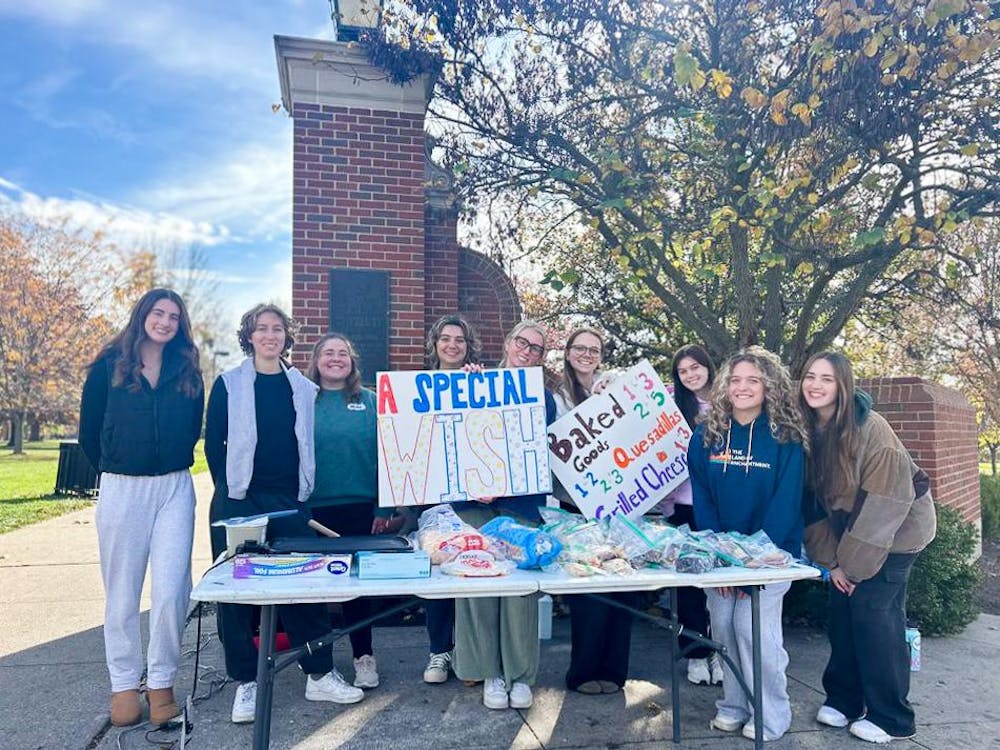Sherrill Sellers, associate dean for undergraduate education in Miami University’s Department of Family Science and Social Work originally wanted to be a lawyer. But she was soon attracted to social work after reading a report on racism at the University of Chicago by Social Worker Dodie Norton.
“I remember reading that report and saying, ‘This woman is brilliant, and whatever she's got, I want it,’” Sellers said. “Literally because Dr. Dodie Norton was a social worker, I ended up with social work. Because the skills that she brought to the table, being inclusive, seeing big picture, but also understanding that it has to come down to the individual. Those were things that I just felt like if we can have we can get those skills, we can change the world.”
Over the past year, social workers have been adapting their efforts in the COVID climate. Social workers, an often unseen labor force, are involved with individuals and families behind the scenes in all aspects of life, from schools to child welfare to hospitals, said Grace Brunton, a first-year social work and global studies double major.
“Social workers work with communities like the homeless population, the foster care system [and] those in hospice or emergency situations in hospice,” Brunton said, “and a lot of times [have] close ties with the criminal justice system.”
With the onset of COVID-19, School Social Worker for Talawanda Middle and High School Madison Wetzel said social workers have been extremely important and adaptable this past year.
“We focused a ton on getting families the resources that they needed to attend school, from home,” Wetzel said. “We provide food weekly to families that are remote. We did that at a much higher level even back in the fall, now we still do it but there are far less students that are remote.”
The pandemic has taken social workers more directly to the doors of students as opposed to just meeting them at school, Wetzel said.
“I call my car a mobile food pantry, because you can always count on there being food, clothing, hygiene items, just various items in my car, which is something that I don't think would typically happen if we were here in school,” Wetzel said. “There were a lot of times, you know, we would be asked to go check on a family, we haven't heard from the student in a while. So probably we did a lot more of that stuff than we would typically, just because students are a lot easier to get a hold of when they come to school every day. And so if we're missing someone or someone hasn't attended school, they would send us out to do a well check to see how we can help the family.”
Wetzel said she also worked a lot more on connecting students to working wifi in order to attend school remotely.
“We did a lot of connecting to services for paying internet bills, which is not necessarily something we would usually do. Because that isn't usually a priority,” Wetzel said. "However, when your student is remote learning [it] becomes one.”
Social work emphasizes the importance of individual choice and bringing resources to people so they can better themselves, Sellers said.
“Most mental health services are provided by social workers,” she said. “Most of us don't know that. And yet, that's a big chunk of their practice.”
Enjoy what you're reading?
Signup for our newsletter
Wetzel said her increased presence over the past year was something the Talawanda School District community appreciated and is something she plans to continue doing even after the pandemic.
“Now, a lot of the people in town or like at these various housing complexes, know who we are,” Wetzel said. “And the more connection [and] the more community folks feel, the more comfortable they are coming to us. And honestly, the more invested in their child's success they become.”
Sellers said social work has always been about making personal connections and impact.
“Social workers are trained to help people address personal and systemic barriers, and to help them to optimize their living,” Sellers said. “As we are employed, we're trying to make positive change, or to help individuals to make positive change, as well as change for families, groups, and entire communities. Historically and now contemporarily, [we are] trying to advance the rights, particularly of our most vulnerable in society.”




